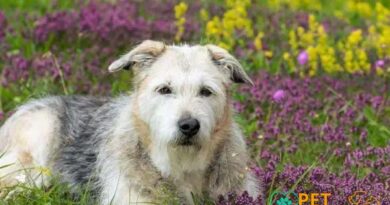O que é guard dogs
What Are Guard Dogs?
Guard dogs are specially trained canines that serve as protectors for homes, properties, and individuals. Their primary role is to deter intruders and provide security through their presence and behavior. Unlike regular pets, guard dogs undergo rigorous training to develop specific skills that enable them to respond effectively to threats. This training often includes obedience, socialization, and protection techniques, making them reliable companions for security purposes.
Characteristics of Guard Dogs
The characteristics of guard dogs vary by breed, but they generally possess traits such as loyalty, intelligence, and a strong protective instinct. Breeds commonly used as guard dogs include German Shepherds, Rottweilers, Doberman Pinschers, and Bullmastiffs. These dogs are often large and muscular, which adds to their intimidating presence. Their keen senses, especially hearing and smell, allow them to detect potential threats before they become a danger.
Training Methods for Guard Dogs
Training methods for guard dogs typically involve positive reinforcement, where desirable behaviors are rewarded with treats or praise. Professional trainers often use a combination of obedience training and protection training to ensure that the dog can follow commands while also reacting appropriately to threats. Socialization is also crucial, as guard dogs need to be comfortable around people and other animals to distinguish between normal situations and potential dangers.
The Role of Guard Dogs in Security
Guard dogs play a vital role in security systems, complementing human efforts to maintain safety. They can be employed in various settings, including residential areas, commercial properties, and even in law enforcement. Their ability to bark loudly when sensing danger serves as an effective alarm system, alerting owners and deterring intruders. Additionally, their mere presence can often prevent criminal activity, as potential intruders may think twice before approaching a property guarded by a dog.
Legal Considerations for Owning Guard Dogs
Owning a guard dog comes with legal responsibilities. It is essential for owners to understand local laws regarding dog ownership, especially concerning breeds that may be classified as dangerous. Liability issues can arise if a guard dog injures someone, so proper training and socialization are crucial. Owners should also consider insurance policies that cover incidents involving their dogs to protect themselves legally and financially.
Benefits of Having a Guard Dog
The benefits of having a guard dog extend beyond mere security. These dogs can provide companionship and emotional support, enhancing the quality of life for their owners. They are often seen as part of the family, offering loyalty and protection. Furthermore, having a guard dog can lead to increased peace of mind, knowing that a trained animal is watching over your home and loved ones.
Common Misconceptions About Guard Dogs
There are several misconceptions about guard dogs that can lead to misunderstandings. One common myth is that all guard dogs are aggressive. In reality, a well-trained guard dog should be calm and controlled, only displaying aggression when necessary. Another misconception is that guard dogs do not require socialization. In fact, socialization is critical to ensure that guard dogs can differentiate between normal situations and actual threats.
Choosing the Right Guard Dog
Choosing the right guard dog involves considering various factors, including the dog’s breed, temperament, and training needs. Prospective owners should assess their living situation, lifestyle, and the specific security needs they have. Consulting with professional trainers or breeders can provide valuable insights into which breeds are best suited for guarding and how to properly train them for the role.
Maintaining a Guard Dog’s Training
Maintaining a guard dog’s training is an ongoing process that requires consistency and reinforcement. Regular training sessions, socialization opportunities, and mental stimulation are essential to keep the dog sharp and responsive. Owners should also engage in activities that promote bonding, such as playtime and exercise, to ensure that the dog remains happy and healthy while fulfilling its protective role.



